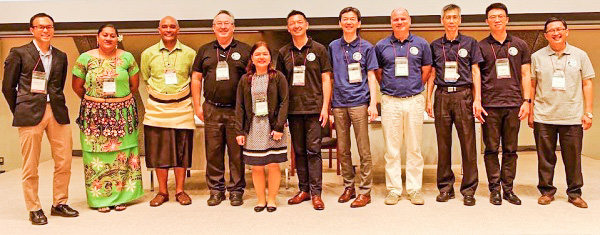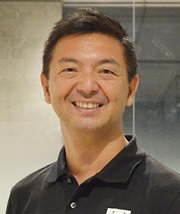Island Generalist Medicine Symposium

 Manabu Saito, Director of the Rural Generalist Program in Japan, writes on a symposium held at WONCA Kyoto 2019 (in conjunction with the Japan Primary Care Association)
Why Island Medicine?
Manabu Saito, Director of the Rural Generalist Program in Japan, writes on a symposium held at WONCA Kyoto 2019 (in conjunction with the Japan Primary Care Association)
Why Island Medicine?
Dr John Macleod, from the Hebridean Island of North Uist, sadly passed away in 2009, shortly after giving a keynote lecture on Island Health at the WONCA World Rural Health Conference, in Crete. John wanted to develop a WONCA Statement on Island Health, and we took his legacy to fulfill a wish by organizing a symposium on island generalist medicine, at the WONCA Asia Pacific region conference in 2019. Islands’ network has started the process that John Macleod so wanted to deliver.
Islands have unique health problems and require equally imaginative solutions. Not only is isolation made worse by weather and limited transport links, but also by workforce recruitment and retention issues and a disproportionately ageing population. Solutions need to include developing a specially trained, broad-based health and social care workforce, the use of new technologies and communication strategies and establishing an academic and research base to underpin future developments.
Objectives and the Overall Theme
The Island generalist medicine symposium had three objectives:
1. Share experiences, insights and lessons learned from clinical service provision, medical training and health systems development across a range of island medicine perspectives;
2. Develop and strengthen the professional network of island medical generalists;
3. Draft a framework for a Statement on Island Medicine to be delivered at the WONCA World of Rural Health Conference in Albuquerque, in October 2019.
Having the concept of increasing an island’s strength and community resilience in the face of a sense of vulnerability, we discussed climate change and its impact on health. In addition, islands have a uniqueness and diversity inherent in their historical isolation, that breeds both their strength and vulnerability.
The following points came out of the symposium.
1. Training and vocational pathways to island medicine - the pipeline
2. The unique cultural contexts of island practice
3. Unique diseases experienced on islands
4. Challenges to manage disease burden based in small populations, shortage of doctors, and scarcity of resources.
5. Island medicine in poverty settings
6. Impact of social determinants of health on island practice
7. Climate change impact on island medicine
Experiences from Asia and the Pacific
Presenters from Japan, the Philippines, Tonga and the Torres Strait Islands shared unique experiences in their practices. Their stories presented similarities and differences in each of the settings, but they complemented each other. Commentators from Taiwan, China, Indonesia and Tonga added depths and insights. Coming together was profoundly supportive and fascinating as we pondered upon deeper questions such as the aspects unique to island medicine; the features distinguishing between island medicine and rural/remote medicine; and incorporating geographical, historical and cultural aspects in the discussions of island medicine.
Next Steps
We are grateful for your participation and appreciate your contributions in the ongoing discussions on island generalist medicine.
We gained a lot of insights and are full of ideas and thoughts as to how this could progress towards the Rural Health WONCA in Albuquerque later this year. In the spirit of island collaboration, we ask for your continued assistance for working towards a statement on Island Medicine at WONCA Rural in Albuquerque, New Mexico in October 2019.
